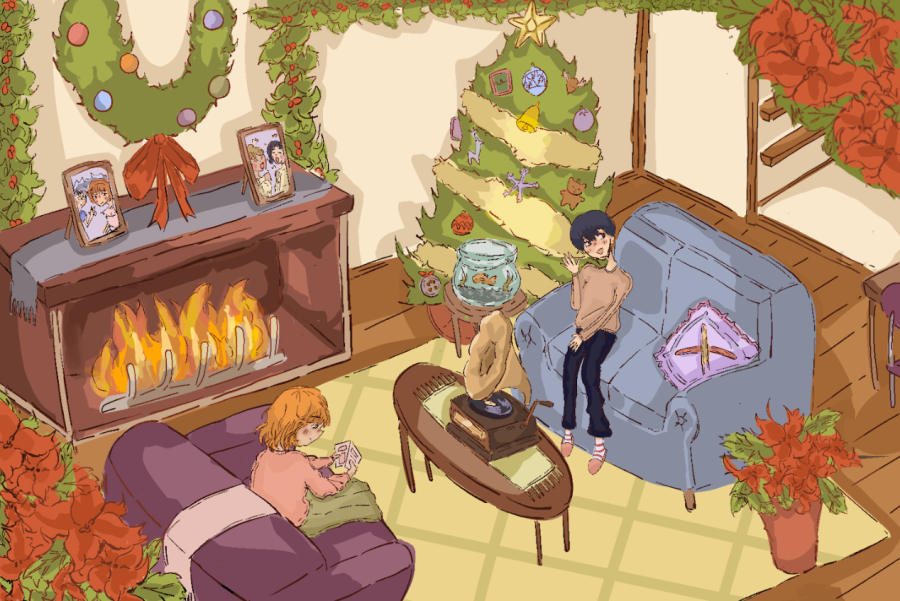The dangers of over planting for the holidays
Home for the Holidays: Decorating with poinsettias and fresh trees may not “point” in the most sustainable direction.
December 2, 2022
Every year, stores fill up with Christmas goods, with Home Depots covered with red and green plants, scented to perfection. Though most customers come in with the intent to decorate their houses and feel the Christmas spirit, they fail to consider the environmental drawbacks, such as the overconsumption of specific plants throughout the holidays driven by the needs of consumers.
Pine trees and poinsettias are the most common plants that become popular in December, causing farms across the United States to partake in a harmful farming practice called monoculture. According to the EOS Data Analytics, monoculture farming is based on growing one type of crop on a specific plot of land, allowing farmers to produce a quicker yield. This process is especially true for pine trees, as they are planted in a specific plot and transferred to Christmas tree farms for consumption all across the country.
Monocropping can heavily deplete soil nutrients and good bacteria that help plants grow healthy, according to The Washington Post. Farmers then increase their use of fertilizer, further depleting the growth of natural bacteria through use of synthetic and chemical fertilizers. Although natural fertilizers do not have the same impact, the EPA states that synthetic fertilizers are less expensive and produce a higher yield of crops compared to completely natural ones, and are thus more commonly used.
Monocropping is also common for poinsettia plants, which are the pointed red flowers often found in wreaths or on dinner tables. According to a study done by Texas A&M University, poinsettia plants especially need nutrients such as nitrate, ammonium and nitrogen in order to effectively grow. However, when monocropping becomes excessive during the holidays, it depletes the plot of land of its natural resources, preventing poinsettias from continuing to produce its naturally bright red color over time.
Although the smell of fresh pine and flowers is an enticing one, the best way to help preserve nature is through buying artificial plants. These one-time buy products last for much longer and will overall be much cheaper compared to buying new plants each year.
In the end, consumer demand is the main driving force behind these harmful farming practices. If the demand for live Christmas trees and flowers reduces, there will be less incentive to monocrop, which overall will create healthier and more sustainable soil life for plants to grow prosperously in the future.


























































